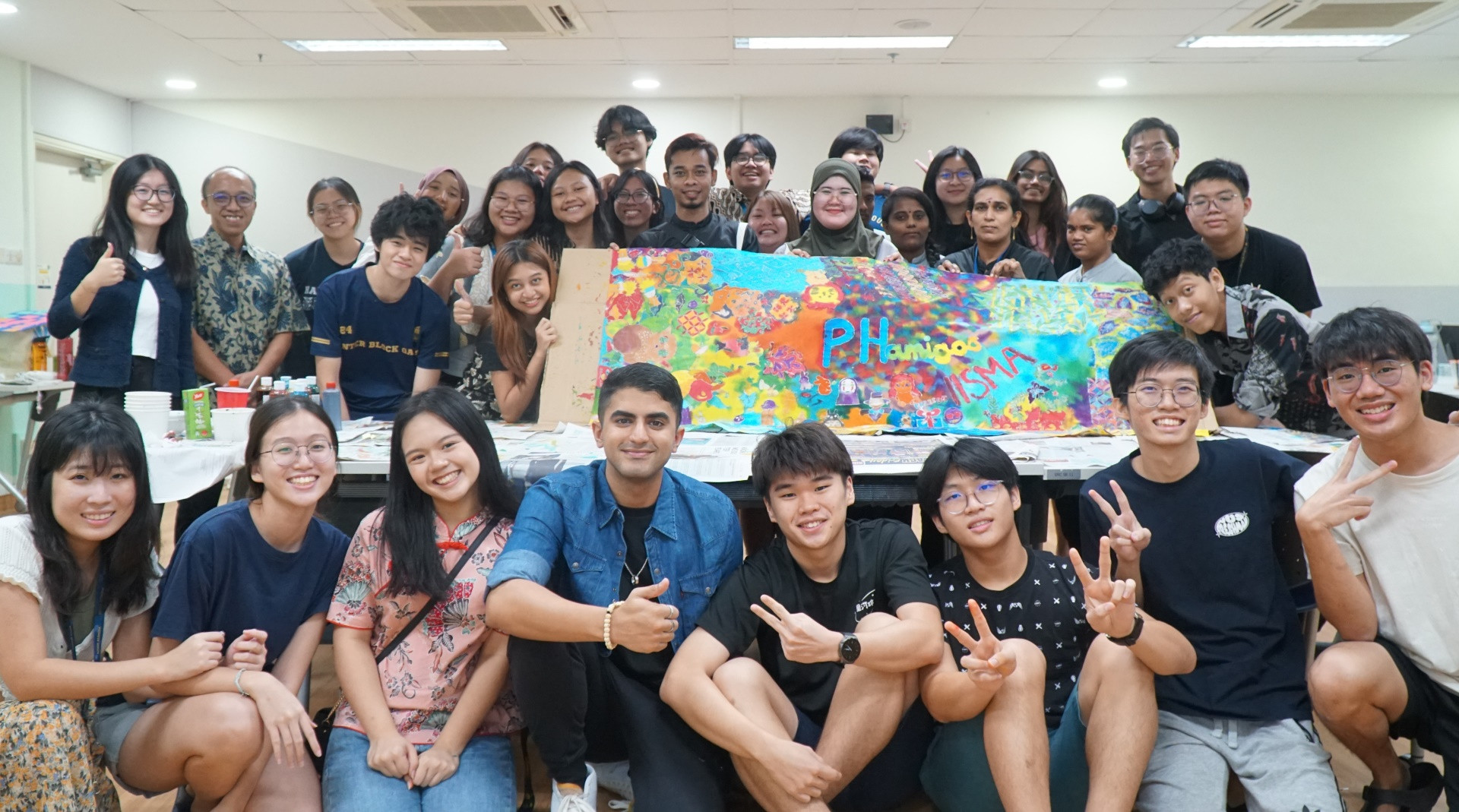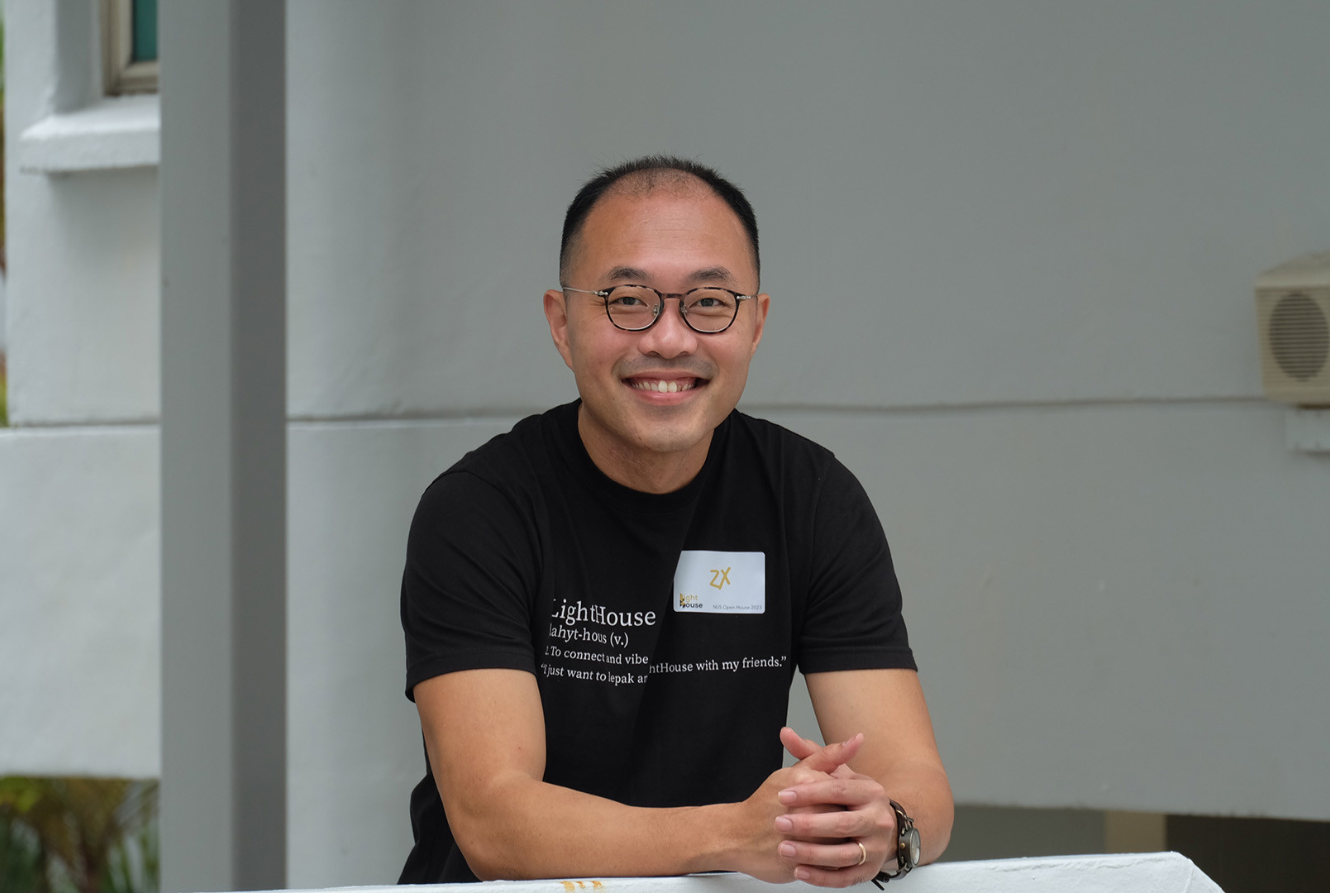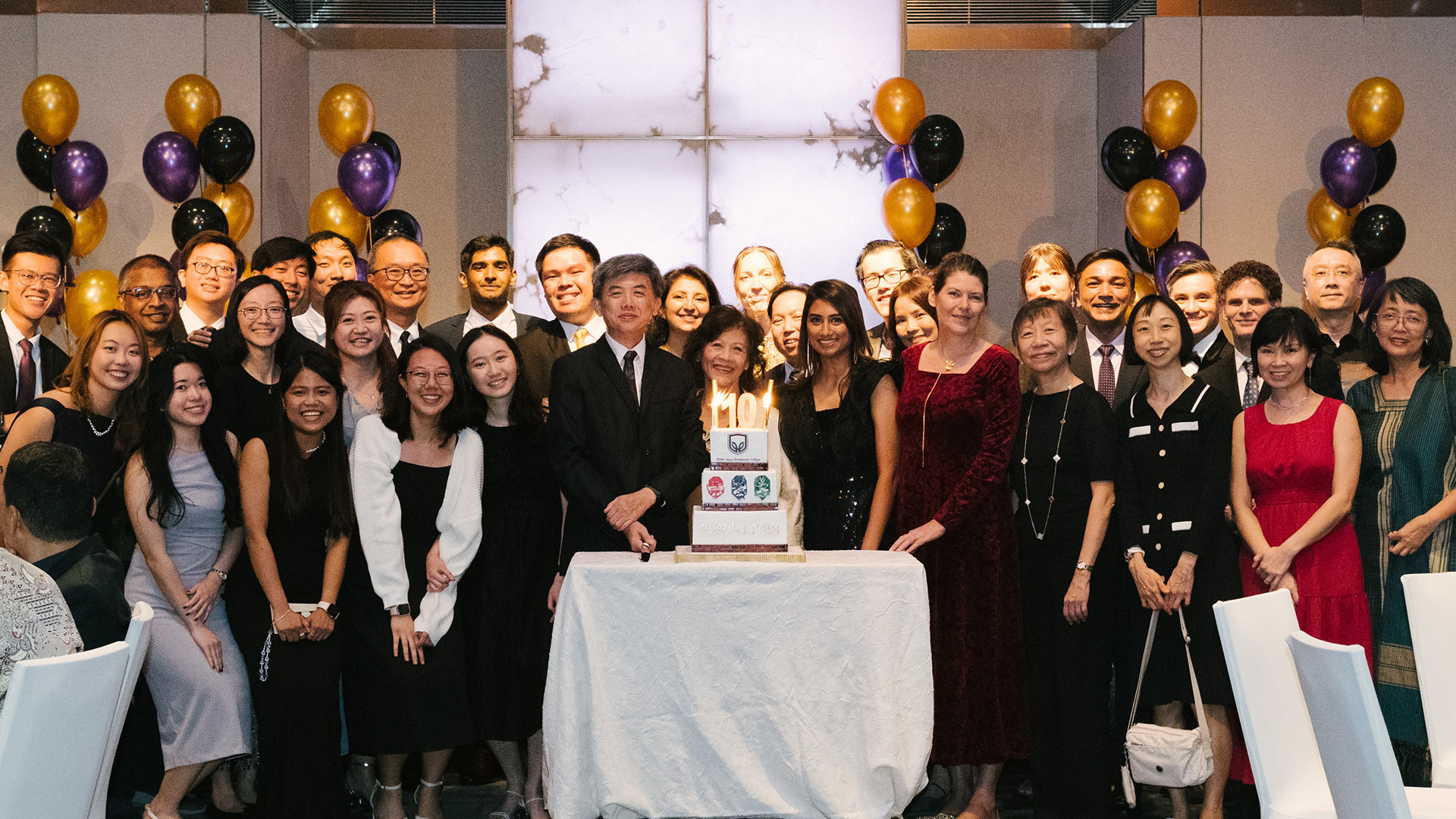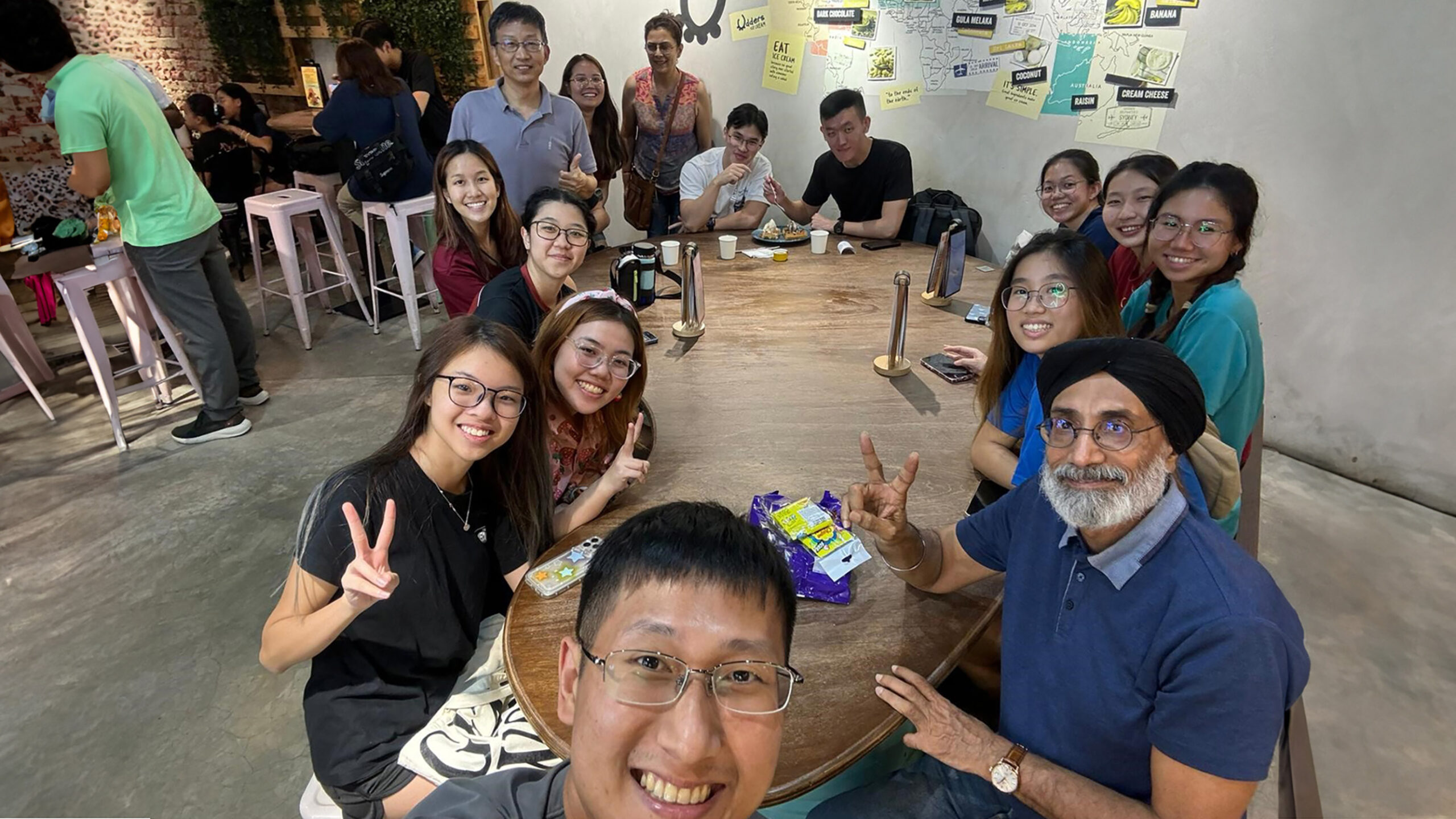In developing a familial and inclusive residential community, inclusiveness has been a key theme at Pioneer House (PH) since its inception in 2017 as a new housing model at NUS centred on proactive pastoral care and mentoring. As such, PH adopts various academic approaches to nurture togetherness and warmth amongst its residents – students who hail from different academic years, as well as cultural and ethnic backgrounds.
Since August 2024 (Semester 1, Academic Year 2024/2025), a pioneering group of ten students has taken this theme of fostering inclusiveness a step further by ‘formalising’ their initiatives to engage the international student community at PH. They embarked on a ‘Design-Your-Own-Course’ (DYOC) – an academic scheme at NUS which allows students the opportunities to pursue self-directed learning beyond their disciplines, through avenues such as engaging relevant subject matter experts at the University. While PH has consistently organised programmes and initiatives to engage its international student community, this step marks the first time it has been carried out through a DYOC framework.
Melding academia and application
The idea for a DYOC was mooted by team leader Nikol Goh (Year 2, Psychology), who wanted to do something meaningful in community building. Fueled by the determination to see the idea come to fruition, the initial team of four she pulled together managed to complete a quick recruitment via spreading the word and social media channels, eventually growing to a group of 10. They creatively named themselves PHamigo, tagging PH’s acronym to the word amigo which means ‘friend’ in Spanish.
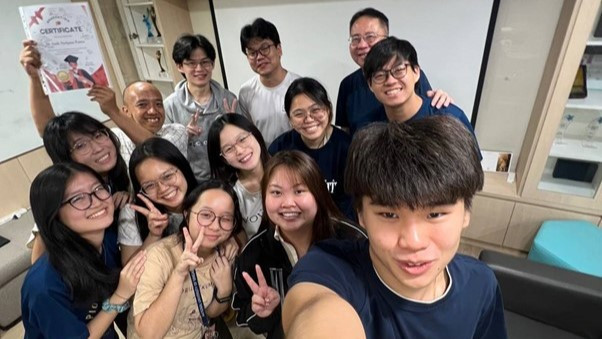
Together with their mentors, PH Resident Fellows Dr Andi Sudjana Putra, Senior Lecturer at the College of Design and Engineering, and Associate Professor Wilson Tam, Deputy Head (Research) at NUS Nursing, the students formulated the intended learning outcomes through application of Bloom’s Taxonomy, an educational framework which categorises learning outcomes into seven ascending levels of thinking. Of the four intended learning outcomes from DYOC, evaluation of the community development journey required the PHamigo team to apply the sixth of seven levels of higher order learning, stretching the students' thinking.
“I was so proud that the students took charge of their own learning through DYOC. For example, the students themselves proposed the use of Asset Based Community Development (ABCD) in framing their project,” said Dr Andi, referring to the strategy for community development that focuses on identifying and using a community's existing assets to improve the community.
“Many times, the student discussions during the sessions were so rigorous that I did not have to intervene much! It was very heartwarming to witness students being fully immersed in their learning,” Dr Andi enthused.
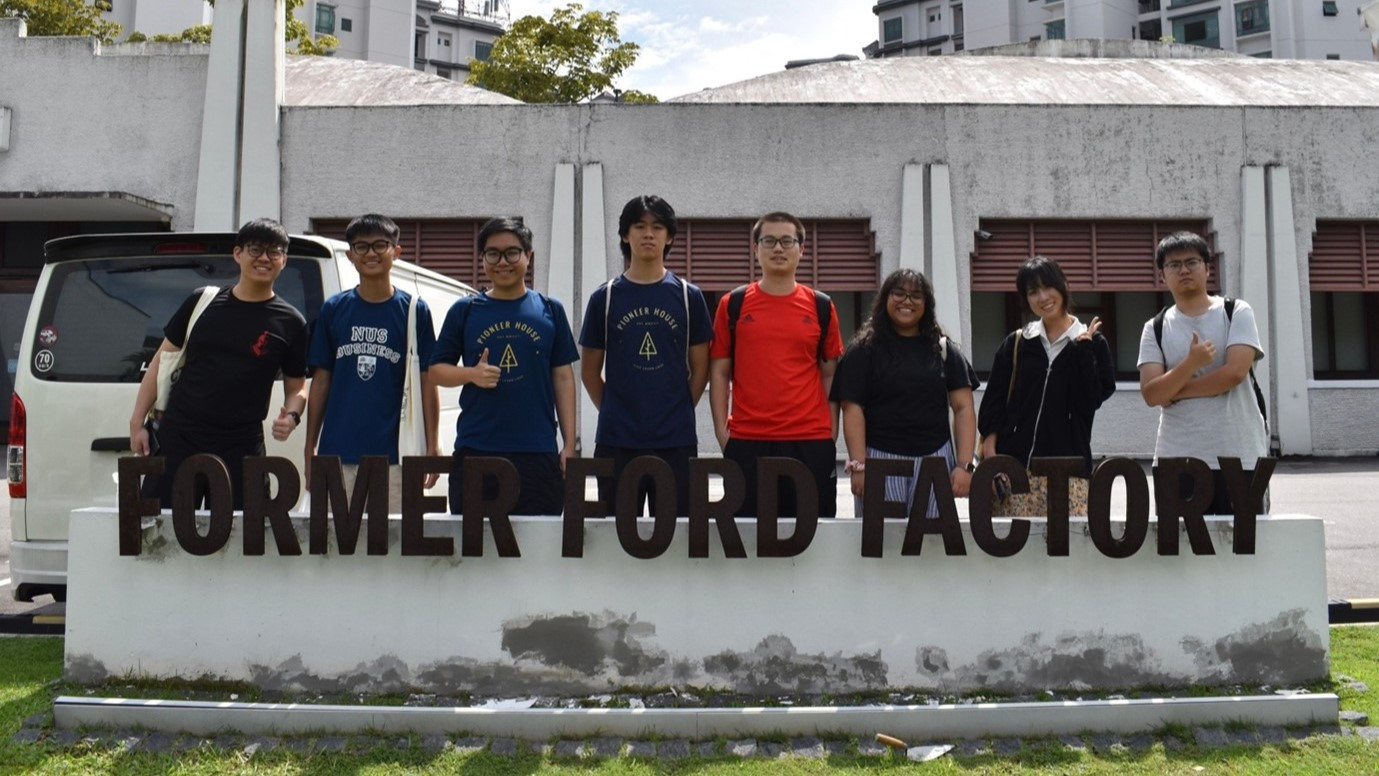
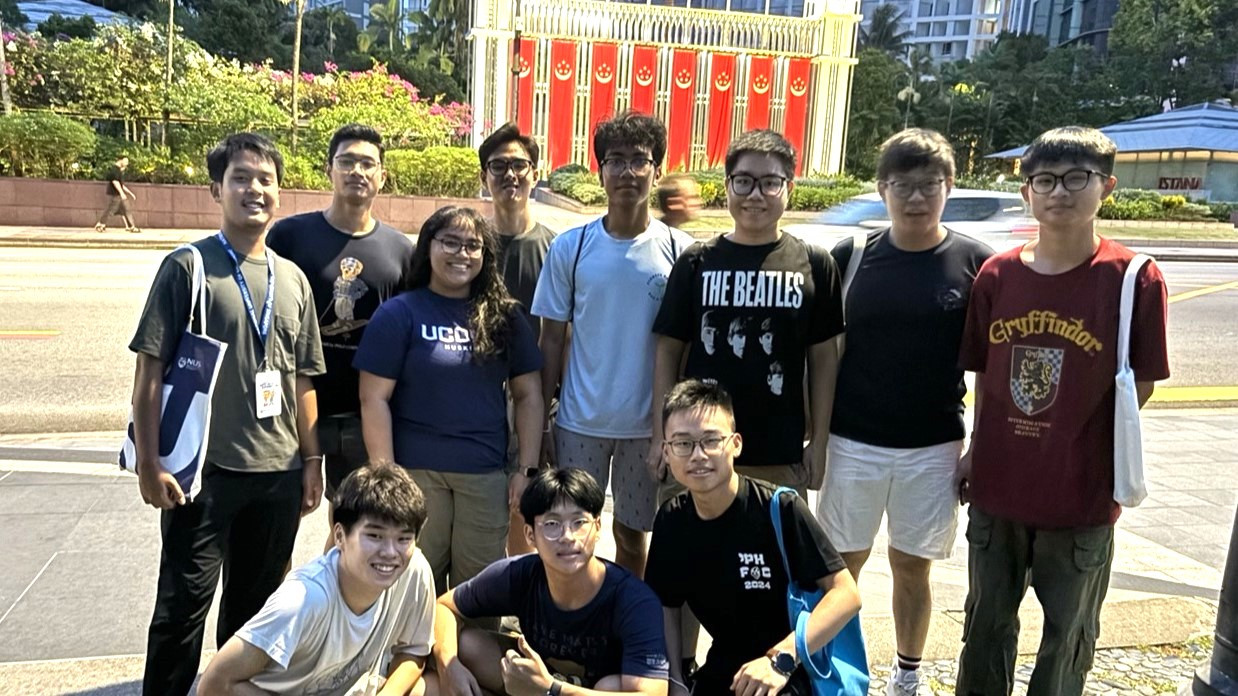
In terms of activity planning, which was one of the deliverables of DYOC, the students planned for events, tours and hands-on experiences for local and international students alike to explore cultures, cuisines, and landmarks of Singapore. During the student-organised tours affectionately called OpenJio, drawing from the colloquial term for an all-inclusive invitation to an activity, the PHamigo team led students on fortnightly visits to events such as the Singapore Light Festival and the Formula 1 Singapore night race, as well as to prominent local landmarks such as Parliament House, the Istana, and the Merlion.
International students also had the chance to experience Singapore’s local childhood games, such as the time-honoured pastime of flipping country erasers. And not to be omitted in a country with an identity rooted in culinary appreciation, students also introduced cuisines from their respective cultures to each other, which they would not have had the chance to try if not for the PHamigo programme.
These activities spanning across the semester were especially valuable in helping international students, most of whom may not have been in Singapore during the orientation season before the start of the academic year, stay plugged into the community.
Elevating community development
To cap off a fulfilling semester of hard work, the PHamigo team also organised a large Batik painting activity on 17 and 19 October 2024. In addition to 40 students, the event also saw the participation of seven members of PH’s housekeeping staff. It was a way for the students to express their gratitude to the staff, who have worked quietly behind the scenes to maintain the cleanliness at PH. It was a serendipitous culmination of many different initiatives which melded together seamlessly – from PHamigo’s framework to elevate community development in their penultimate activity for the semester, to a group of international students who were introduced to batik, to other students who wanted to bring the housekeeping team at PH on an outing.
“We wanted to emphasise the idea that ‘community’ in PH is not only students, but also staff, including the housekeeping team, whom we are grateful for. We wanted to appreciate them as part of PH for all the work that they have done,” Nikol reflected.
“The students originally wanted to bring the housekeeping team on an outing. However, after speaking with them, we realised the challenges in doing so due to their working hours and commitments. Some also had mobility issues, making moving around difficult for them. It was then we learnt that what we think they need, may not be what they actually need,” Nikol added, sharing that this led the team to decide to hold the activity in PH instead.
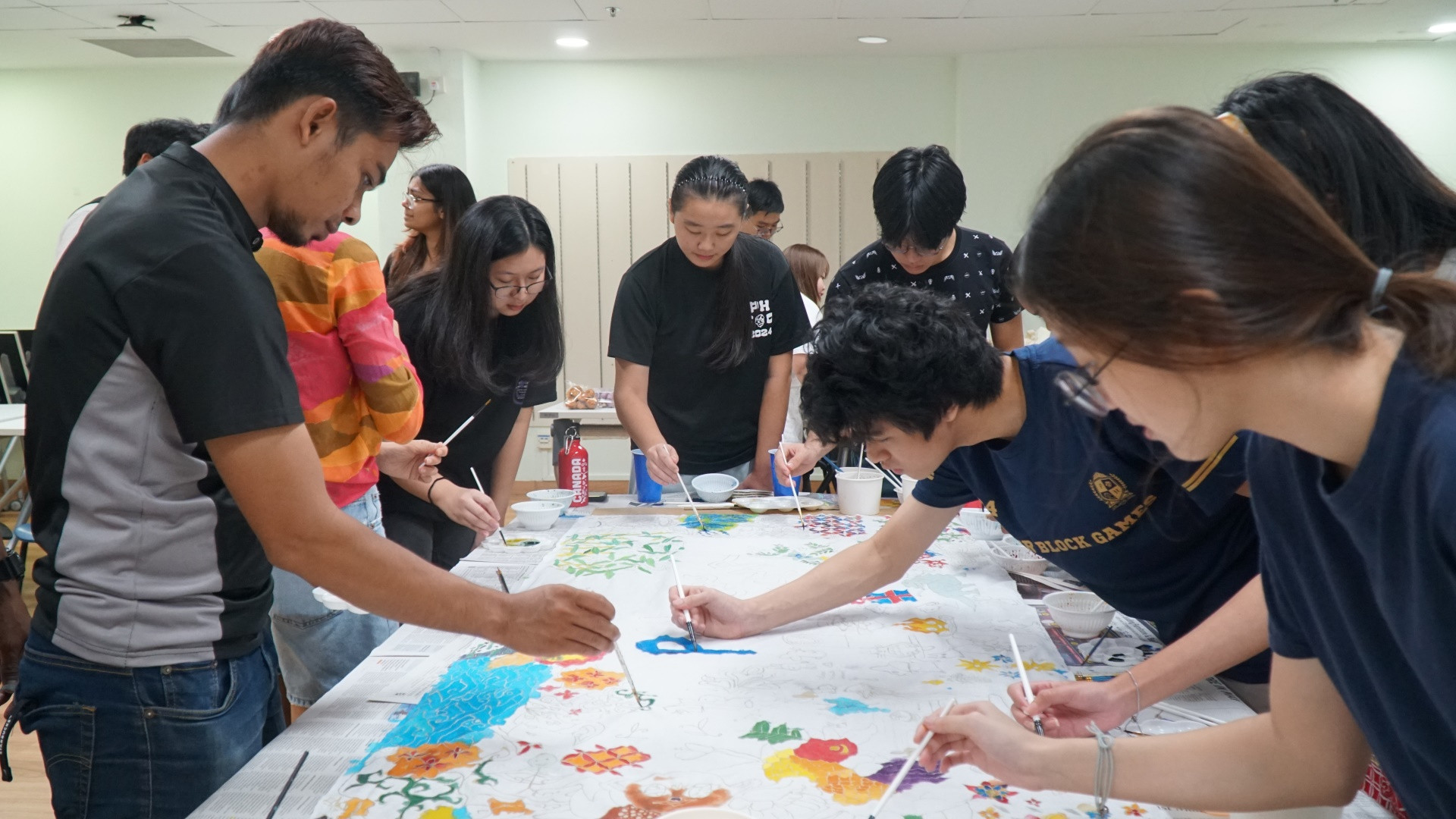
In additional to its cultural relevance and roots in Southeast Asia, the application of batik creation also tapped on the concept of ABCD that framed the DYOC, such as a group of students keen to introduce it to the community, and the knowledge drawn from previous cluster activities that many fellow students at PH have artistic talents in drawing. The batik workshop was received positively by local and international students, some who found it therapeutic and stress-relieving.
Reflecting on the experience with PHamigo, Nguyen Ky Minh, a first-year international student from Vietnam. “I found PHamigo a very useful and fascinating exercise in cultural exploration. I especially enjoyed the OpenJio walks around Singapore, which helped us learn more about facets of the Singaporean cultural mosaic that we probably would have never encountered on our own. I certainly second the continuation of this initiative, which will undoubtedly complement PH residents’ time in Singapore.”
“I think many students possess theoretical knowledge of community development. However, from its application in PH through DYOC, it was fulfilling to witness how the activities based on the concept were so enthusiastically accepted by the community, and it left me impressed by how many lives the activities have touched,” said Nikol.
Registrations for the next PHamigo DYOC, which will take place next semester, have opened, and the community eagerly looks forward to more activities in their experience of living, learning, and growing together.
Share:
Contributor
This article first appeared in NUS News.


